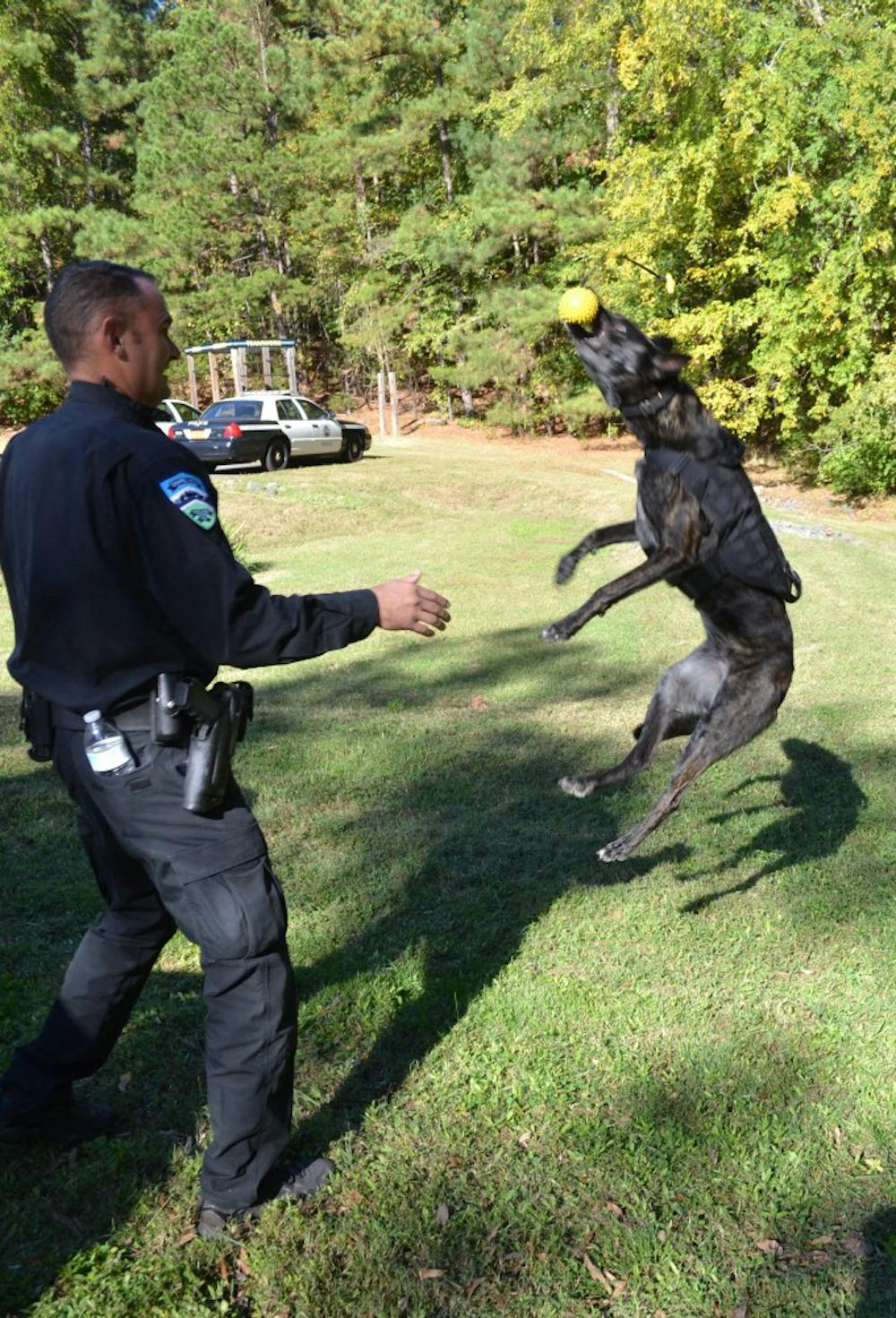They might look cute, but they can bite. Police dogs are used throughout Orange County, training for months and learning to track, smell narcotics and find bombs.
There are multiple ways to buy a police dog, said Officer David Funk from the Chapel Hill Police Department. Both overseas and local breeders sell dogs, but the Chapel Hill Police Department buys their dogs from the Czech Republic.
Funk said the cost of a police dog varies depending on the level of training the dog has received. The three main breeds used are German Shepherds, Dutch Shepherds and Belgian Malinois.
These dogs spend around 14 weeks learning commands and obedience training with their officer, Funk said. Throughout this training, a deep bond forms between the dog and officer — the officer-canine relationship is built on trust and the officer must be confident that the dog will listen to their commands.
Sergeant Joseph Glenn of the Carrboro Police Department said police dogs are always ready to work.
“I dress in uniform and put Titus (police dog) into the back of my patrol car and he is alert and ready," he said. "He listens to what is going on and feeds off of my emotions.”
The selection process for K9 handlers is difficult and requires experience, Glenn said. These K9 officers must be able to establish a connection with the dogs and communicate their feelings because they are often out in the field alone.
Glenn said police dogs are vital to solving cases, mostly because of their strong sense of smell, which can be up to 100,000 times better than humans. Officers are able to use probable cause to search a car when they pull someone over with the help of a K9 smelling narcotics or stolen goods.
Police dogs are trained to think of every exercise and real interaction as a game with a reward. Handlers use a command and call system to dictate the dogs' actions.



